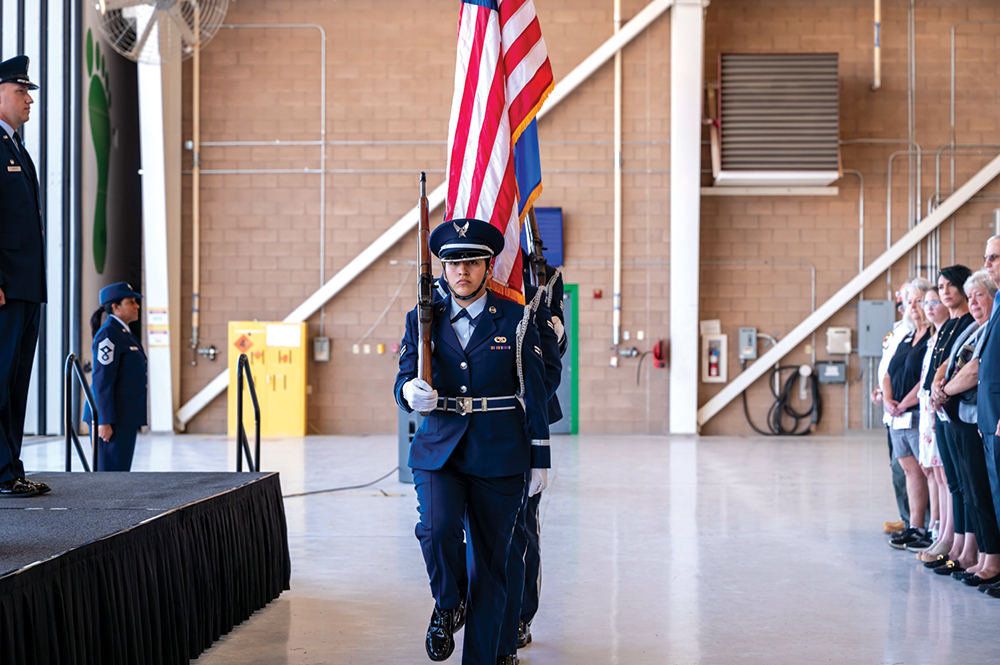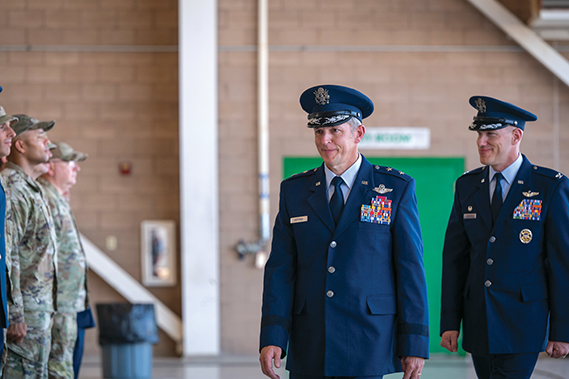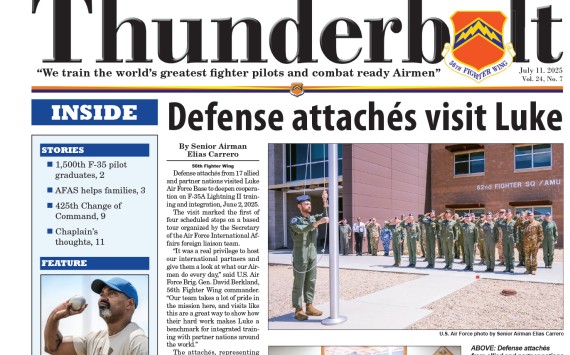Air Force Special Operations Command held an Assumption of Command ceremony for the 11th Air Task Force here on Oct. 8, 2024. The ceremony, presided over by Maj. Gen. Justin Hoffman, AFSOC deputy commander, marked the official activation,
ATFs, which replace the Expeditionary Air Base model, are the next evolution of the Air Force’s progress toward the Deployable Combat Wing and a significant milestone in the Air Force’s journey toward modernization and readiness to ensure and maintain a competitive advantage over the pacing challenge.
“The typical timeline for activation [of a unit] is often on the order of a couple or even several years. Yet, here we are after only a few months,” said Col. Brett Cassidy, 11th ATF commander. “Our rapid activation represents Airmen aggressively driving forward the vision of our leadership.”

Airmen assigned to the ATF will follow the Air Force’s Force Generation cycle to deploy as units of action in the coming years. This model will allow the unit of action to train as a team to improve unit readiness and help leadership clearly articulate Air Force capacity and risk to the joint force.
“Our service has realized that crowdsourcing Airmen from multitudes of bases is not sufficient to building winning teams to defend our nation,” said Hoffman. “That’s why the deliberate and predictable nature of the AFFORGEN cycle is built into the ATF concept.”
The AFFORGEN cycle is built to enable Airmen to train and exercise together before being operationally employed together as part of a team. While the implementation differs depending on the mission of each Major Command, the goal is to achieve a common lexicon, more individual predictability, and greater alignment of readiness generating activities such as large-scale exercises across the Air Force.
“ATFs are the future of successful and cohesive deployments to win in Great Power Competition,” said Chief Master Sgt. Sharreen Taylor, 11th ATF command chief. “By building a tight-knit unit with a strong sense of connection and dedication to the mission we are prepared to take on any challenge we encounter, together.”
The 11th ATF, along with ATFs activated at five other locations identified by the Air Force, will serve as experimentation platforms that will help refine the rotational force presentation model while also providing lessons which can improve the combat wing structure.
“Nowhere in the Air Force will you find a better integrated group of Airmen working across major command lines to realize a shared vision,” said Cassidy. “That integration is further enabled by the incredible support from the local community here in Tucson.”
ATFs are part of the Department of the Air Force’s plan to implement major changes centered on how the Air Force develops people, generates readiness, projects power, and develops integrated capabilities in today’s strategic environment.












